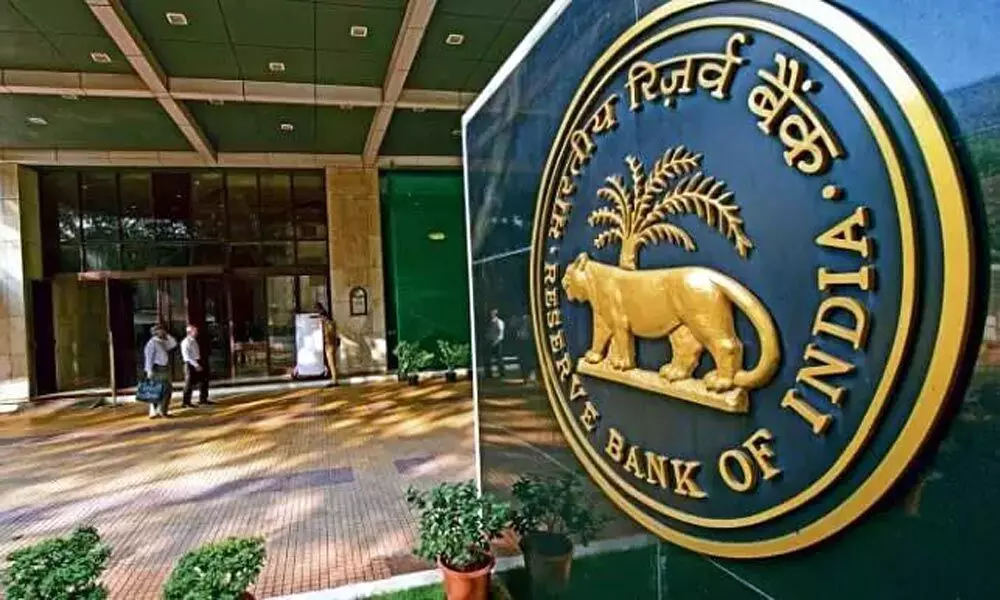RBI leaves key rates unchanged
But sticks to accommodative stance; retains both GDP estimate at 9.5% and inflation target at 5.3% for FY22
image for illustrative purpose

- Status quo necessitated by renewed uncertainty by Omicron
- Repo rate remains at 4%
- Reverse Repo unchanged at 3.35%
- RBI to unveil a scheme for liquidity adjustment in Jan
- It'll be done by way of reverse repo auction
- Hopes cut in excise duty and VAT on petrol and diesel will bring down inflation
Mumbai: Treading the monetary policy on the expected lines, the Reserve Bank of India (RBI) on Wednesday kept its repurchase (repo) rate unchanged at four per cent in its bimonthly review of the annual monetary policy. Experts are of the view that the RBI may continue to have its status quo on key policy rates in the next review meeting too, which was due in February.
Most of the experts had predicted that the RBI would maintain status quo on the key policy rates this time. RBI's decision to maintain accommodative stance on the key policy rates was revealed by the RBI Governor, Shaktikanta Das on conclusion of three-day marathon monetary policy (MPC) committee meeting on Wednesday (December 8, 2021).
Today's policy review maintained a complete status quo on the repo and reverse repo rates and the monetary policy stance, in line with our expectations, necessitated by the renewed uncertainty fuelled by theOmicron variant.
The RBI governor said that liquidity in the system will be reduced via OMO and the exercise will kickstart in January. He maintained that ascheme would be planned for liquidity adjustment in January. It will be done by way of reverse repo auction.
Shanti Ekambaram, Group President, Consumer Banking, Kotak MahindraBank, says: "The MPC acknowledged that the economic recovery is becoming broad-based thanks to increased vaccination and a slump in Covid cases. While rural demand is likely to stay resilient, pent-up
demand will continue to bolster urban consumption. Having said this, RBI also pointed out that the economy may face downside risks from volatile commodity prices and financial markets, persisting global supply disruptions, and new mutations of the virus. RBI retained both the GDP estimate at 9.5 per cent, and the inflation target at 5.3 per cent for FY21-22. This is assuming that there would be no fresh spurt in Covid cases."
The MPC will use liquidity and other tools at its disposal to maintain price stability and continue to support the nascent but firm economic growth. The RBI has stated that they will provide continued policy support to economic growth. The RBI will continue to balance economic growth and inflation and watch global events and domestic data for further policy outlines and interventions, he added. George Alexander Muthoot, Managing Director at Muthoot Finance said: "The RBI also remains committed to broaden growth impulses andpreserve financial stability. I concur with RBI's stance that whilethe recovery impacted by the pandemic is gaining traction, Private consumption is still below pre-Covid levels, private investment isstill lagging.Hence, the nascent growth still needs policy support.The RBI also continues to rebalance liquidity conditions in anon-disruptive manner."
Another school of thought believes that the RBI will continue tomaintain status quo in next policy review too.
Nikhil Gupta, Chif Economist, Motilal Oswal Financial Services said:"A hike in reverse repo rate on cards in Feb'22, but could bepostponed to Apr'22 as well. Going forward, we fear that real GDPgrowth could be lower than the RBI projections, with inflation falling broadly in line". Along with the rising threat from the Omicron variant, there is a possibility that a hike in reverse repo could be postponed further to April 2022".
Madhavi Arora, Lead Economist, Emkay Global Financial Services, said that the MPC expectedly kept the key rates unchanged unanimously and reiterated its accommodative stance both on rates and liquidity.
Cyber security, frauds main concerns with digital currency: RBI
Mumbai: As the RBI moves ahead for the launch of the central bank digital currency (CBDC), Governor Shaktikanta Das on Wednesday marked out cyber security and digital frauds as the main challenges in the new system. Deputy Governor T Rabi Sankar said there are two types of CBDCs - wholesale and retail - and a lot of work has happened in the former, while the latter was termed as a complicated aspect which will take time.
The RBI had earlier this year announced that it has started work on the CBDC, in line with other major central banks of the world which are looking at a fiat digital currency. According to a report, the RBI is looking to start with pilot exercises on the same front by early next year.
"Main concern comes from the angle of cybersecurity and possibility of digital frauds. We have to be very careful about that," Das told reporters in the post-policy interaction.
Das recalled that a few years ago, there were concerns with fake currency and similar aspects can play out with the launch of the CBDC, which need to be prevented by putting up the necessary firewalls and a robust security architecture.

